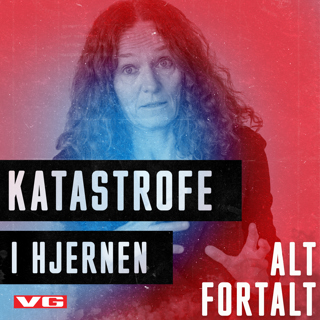
Sarah Banet-Weiser, “Authentic: The Politics of Ambivalence in a Brand Culture” (NYU Press, 2013)
In Authentic: The Politics of Ambivalence in a Brand Culture (NYU Press, 2013), Sarah Banet-Weiser scrutinizes the spread of brand culture into other spheres of social life that the market–at least in our imaginations–had left untouched: politics, religion, creativity, and the self. Banet-Weiser observes that the authenticity concept seems to carry more weight in a culture of selling: We have come to expect, and to some extent accept, that authenticity, like everything else, can be trademarked. Through rich case studies–Dove ad campaigns, Facebook self-performance, street art, green activism, and New Age spirituality among them–Authentic identifies the pervasive (and often troubling) ambivalence of branded living. Learn more about your ad choices. Visit megaphone.fm/adchoices Support our show by becoming a premium member! https://newbooksnetwork.supportingcast.fm/critical-theory
27 Aug 201357min

Brian Michael Goss, “Rebooting the Herman and Chomsky Propaganda Model in the Twenty-First Century” (Peter Lang, 2013)
Brian Michael Goss, professor of communication at St. Louis University in Madrid, has taken one of media’s most studied theories and given it a facelift. In Rebooting the Herman and Chomsky Propaganda Model in the Twenty-First Century (Peter Lang, 2013), Goss revisits the model created by Edward Herman and Noam Chomsky in their 1988 book, Manufacturing Consent. The filters remain, but Goss pushes the model into the modern context of new media models and expanded global exportation. “Far from condemning journalism,” Goss writes, “I hope to see it more closely approximate its mythologies about itself.” “Rebooting” is an important work, relevant not just to scholars, but all consumers of media. Learn more about your ad choices. Visit megaphone.fm/adchoices Support our show by becoming a premium member! https://newbooksnetwork.supportingcast.fm/critical-theory
22 Jul 201344min

Stacy Alaimo, “Bodily Natures: Science, Environment, and the Material Self” (Indiana UP, 2010)
In her book, Bodily Natures: Science, Environment, and the Material Self (Indiana University Press, 2010), Stacy Alaimo approaches the concepts of “science, environment, and self” in an extremely novel and inventive way. The central concept in Alaimo’s work is that of “trans-corporeality” which she describes as a way of theorizing the relationship between humanity and the world at large as not being clearly delineated and separate, but as fluid. As this relates specifically to nature and the environment, Alaimo’s intention is for the reader to reimagine questions of environmental ethics and environmental practices as not isolated issues but rather deeply personal as the environment and our material selves are bound up with one another in a deeply intimate manner. I found Alaimo’s central approach with “trans-corporeality,” theorizing the human as being “already in the world,” extremely refreshing when compared to the idea of human agency in postmodern studies. In this way, Alaimo provides an alternate framework for conceiving of human agency, and thus an “out” of sorts, a release, from the bounds of postmodernism’s isolated and castrated human agent. Alaimo calls this novel direction, “New Materialisms.” With this concept, Alaimo offers new insights into feminist thought and theory. Bodily Natures: Science, Environment, and the Material Self is sure to appeal to many students and scholars of literary studies and critical theory. Learn more about your ad choices. Visit megaphone.fm/adchoices Support our show by becoming a premium member! https://newbooksnetwork.supportingcast.fm/critical-theory
8 Jul 201351min

Michael Serazio, “Your Ad Here: The Cool Sell of Guerrilla Marketing” (NYU Press, 2013)
“Power through freedom.” Michael Serazio‘s Your Ad Here: The Cool Sell of Guerrilla Marketing (NYU Press, 2013) traces the mushrooming world of guerrilla marketing–defined to include word-of-mouth, viral, and advergaming, along with a host of other, often hidden kinds of persuasion. The book describes the ways that advertisers give up “control” to consumers through “authentic” discovery, dialogue, amateurism, the non-sell sell, and even anti-marketing messages themselves–all of which serve, paradoxically, to reinforce control and commercialism. The consumer subject, writes Serazio drawing on Foucault and Gramsci, is strategically engaged to act without the sense of being acted upon–a kind “corporate ventriloquism.” The book includes rich, detailed case studies and interviews with marketers, who recount their “cool sell” campaigns for America’s Army, PBR, and Burger King’s “Subservient Chicken.” Learn more about your ad choices. Visit megaphone.fm/adchoices Support our show by becoming a premium member! https://newbooksnetwork.supportingcast.fm/critical-theory
3 Jul 201358min

Dominic Pettman, “Human Error” (UMinnesota, 2011)/”Look at the Bunny” (Zero Books, 2013)
“The humans are dead.” Whether or not you recognize the epigram from Flight of the Conchords (and if not, there are worse ways to spend a few minutes than by looking here, and I recommend sticking around for the “binary solo”), Dominic Pettman‘s Human Error: Species-Being and Media Machines (University of Minnesota Press, 2011) will likely change the way you think about humanity, animals, machines, and the relationships among them. Pettman uses a series of fascinating case studies, from television programs to films to Sufi fables to pop songs, to explore the notion of Agamben’s “anthropological machines” and the human being as a “technospecies without qualities” in a modern mediascape that includes Thomas Edison’s film Electrocuting an Elephant, Werner Herzog’s Grizzly Man, and the interplanetary soundscape created by NASA (among many, many others). We recently gathered over Skype to talk about some of the major thematic and argumentative threads snaking through this book and Pettman’s recent exploration of totems in Look at the Bunny: Totem, Taboo, Technology (Zero Books, 2013). Both books take on the varied ways that love, technology, identity (both human and not), and economies have been transformed in a world that includes pacifist Orcs, voices without bodies, ecologies without nature, reptile-doctors, and pixelated lovers. Enjoy! During our conversation, Pettman mentions a film about the zigzag totem that can be found here. Cabinet Magazine, which also comes up in the course of our conversation, can be found here. Learn more about your ad choices. Visit megaphone.fm/adchoices Support our show by becoming a premium member! https://newbooksnetwork.supportingcast.fm/critical-theory
31 Mai 20131h 15min

Amir Eshel, “Futurity: Contemporary Literature and the Quest for the Past” (University of Chicago Press, 2013)
In his very recent work, Futurity: Contemporary Literature and the Quest for the Past(University of Chicago Press, 2013), Amir Eshel presents us with a very interesting examination of what he refers to as “futurity” or literature’s ability to provide us with a way to access the past, rethink it, and move forward. Eshel’s work here can best be understood as part of the larger effort in literary studies to move beyond the tired and exceedingly fruitless lens of the hermeneutics of suspicion and the despairing chasm of postmodernity. As foci, Eshel examines postwar German literature and Hebrew literature particularly focused on the Israeli-Palestinian conflict. Overall, the portion of Futurity that continues to linger with me is Eshel’s beautiful ruminations on W.G. Sebald’s masterpiece, Austerlitz. Eshel’s reflections on Austerlitz encouraged me to pick up that novel once more and for this alone I highly encourage anyone interested in postwar German literature, Hebrew literature, and or the future and meaning of literary studies to give Eshel’s work a read. Learn more about your ad choices. Visit megaphone.fm/adchoices Support our show by becoming a premium member! https://newbooksnetwork.supportingcast.fm/critical-theory
22 Jan 201356min

Nicholas De Villiers, “Opacity and the Closet: Queer Tactics in Foucault, Barthes, and Warhol” (University of Minnesota Press, 2012)
In his book, Opacity and the Closet: Queer Tactics in Foucault, Barthes, and Warhol (University of Minnesota Press, 2012), Nicholas de Villiers takes up an examination of the work of the three titular authors as a way of understanding their queerness and more specifically, how each man subverted the “in-and-out of the closet” paradigm. De Villiers devotes ample time to each man, however I found his thoughts on Foucault and Barthes of particular importance as both have come to be so deeply associated with postmodernism, poststructuralism, and queer theory. It is safe to say that Foucault is in large part responsible for the theoretical and philosophical foundations of what we know of today as queer theory and queer studies. This fact makes Foucault’s own relationship with his “out” sexuality all the more fascinating and de Villiers does a great service to Foucault, showing that Foucault himself subverted the “in-and-out of the closet” paradigm and society’s need to ferret out and make known our sexualities. While many scholars, academics, and cultural critics have criticized Foucault for his “silence,” de Villiers’s work suggests that Foucault’s life was a practice in complicating and disrupting the immense societal desire to see homosexuality expressed in one sanctioned way. De Villiers work here is deep, insightful, and refreshing in its attempt to offer an alternative to “suspicious reading.” I do hope you enjoy our conversation. Photo Credit: Lauren M. Jones Learn more about your ad choices. Visit megaphone.fm/adchoices Support our show by becoming a premium member! https://newbooksnetwork.supportingcast.fm/critical-theory
11 Jan 201357min

Avner Baz, “When Words Are Called For: A Defense of Ordinary Language Philosophy” (Harvard University Press, 2012)
In When Words Are Called For: A Defense of Ordinary Language Philosophy (Harvard University Press, 2012), Avner Baz sets out to make a case for the reconsideration of Ordinary Language Philosophy, or OLP, in mainstream academic philosophy. I personally found Baz’s work in it interesting due to the fact that my familiarity with OLP comes solely from a literary perspective and both Baz, as a trained philosopher, and his argumentation present an interesting glimpse into the deep resistance towards OLP that can be found in mainstream philosophy. In fact, after reading When Words Are Called For, and even more so, after speaking with Dr. Baz, it became apparent just how differently philosophers and literary academics view, value, and understand OLP and what it has to offer the critics and the curious. For those readers who have either a deep affinity for OLP or who come at it from a literary, non-analytical philosophical perspective much of When Words Are Called For will seem spot on but ultimately unnecessary in the best sense of that word in that Baz spends a great deal of his time making a case for the legitimacy of a philosophical perspective that many who are familiar with it from a literary perspective will simply find a given. This is truly the result of a difference in disciplinary perspective more than anything else. Where When Words Are Called For does shine is in the epilogue, “Ordinary Language Philosophy, Kant, and the Roots of Antinomial Thinking,” where Baz offers some fascinating insights into the connections between Kant and OLP. Admittedly, When Words Are Called For is best for the skeptical philosopher, but it also serves a great purpose in illustrating the extreme differences in how two humanist disciplines can approach and come to understand a way of thinking about the world and conceptualizing the language that unites it. Learn more about your ad choices. Visit megaphone.fm/adchoices Support our show by becoming a premium member! https://newbooksnetwork.supportingcast.fm/critical-theory
31 Okt 201252min




















